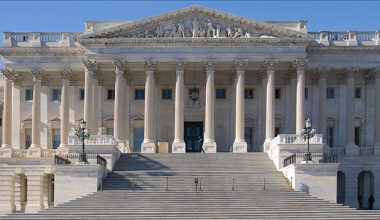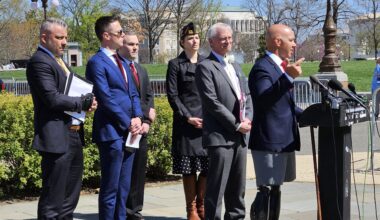This week’s update highlights legislative developments in California, Massachusetts, Pennsylvania and Washington, DC.
California
Over 750 Cal NORML supporters have written letters to their Assemblymembers in support of AB 2188, which bans employers from denying workers’ jobs or firing them based on a positive drug test for inactive metabolites of THC. These metabolites can be detected for days or weeks after use, and have no correlation with on-the-job impairment.
If passed, California would be the seventh state to offer employment protections for recreational users. The others are Nevada, New York, New Jersey, Connecticut, Montana, and Rhode Island.
Update: The bill passed the Assembly and was most recently the Senate Labor committee with a vote of 4-1. It now heads to Appropriations. The California legislature will be on break for July, and back in August.
Send a message to your legislator today.
Of note: AB 195 (Budget Committee) is an omnibus budget trailer bill that included meaningful changes to the cannabis taxes, including the zeroing out the cultivation tax indefinitely and shifting excise tax collection from distribution to retail, pushing back on an automatic tax increase which would have taken effect in 2024, bolstering enforcement against unlicensed operators, and providing additional relief for social equity operators.
Update: AB 195 passed the Legislature with bi-partisan support and now goes to the governor, who is expected to sign it. AB 195 will take effect immediately upon signature by the governor, providing the legal cannabis industry some much-needed temporary tax relief, beginning July 1, 2022.
Massachusetts
Senate Bill 2823 outlines social equity provisions for the state’s cannabis industry as well as expectations for the establishment of new businesses. If passed, the bill would mandate that a portion of retail profits from social equity marijuana businesses be reinvested in the community that the business serves. It also requires that host communities encourage local individuals that have been disproportionately harmed by marijuana prohibition and enforcement to participate in the industry.
Update: Differing versions of SB 2823 have passed the House (153 to 2) and the Senate (39 to 0). The bill now heads to the Conference Committee so that lammakers can agree upon final language before it heads to the Governor’s desk.
Send a message to your Governor in support of this effort.
Pennsylvania
Under current Pennsylvania state law, a person is guilty of DUI if he or she drives with any amount of a Schedule I controlled substance or its metabolite under the Controlled Substance Act in his or her blood.
Senator Bartolotta’s Senate Bill 167 would amend this law and treat medical cannabis patients the same as patients using a prescription medication by requiring proof of actual impairment as the basis for a DUI conviction. This legislation is essential to ensuring that patients are not being charged with a DUI for the mere presence of non-psychoactive metabolites and without proof of actual impairment.
Update: SB 167 unanimously passed the Senate Transportation Committee and is headed to the full Senate for a full floor vote.
Send a message to your lawmakers in support of this effort.
Washington, DC
B24-0109, which seeks to prohibit any employer from taking any adverse actions against an employee for using cannabis, participating in the District’s medical cannabis program, or failing to pass an employer’s required drug test for public safety jobs. Safety sensitive jobs may include professions where firearm licenses are a requirement to be on duty. A provision in the bill would only permit employers to take action against employees if the signs of their cannabis use negatively impacts their job performance.
Update: DC’s Council voted unanimously on June 7th to enact the Cannabis Employment Protections Act. Mayor Muriel Bowser had 10 days to sign or take no action for the bill to become an act. Since the Mayor did not sign the act, it will be automatically transmitted to Congress. Congress has 30 days to take action from transmission date.
Related
Medical Disclaimer:
The information provided in these blog posts is intended for general informational and educational purposes only. It is not a substitute for professional medical advice, diagnosis, or treatment. Always seek the advice of your physician or other qualified healthcare provider with any questions you may have regarding a medical condition. The use of any information provided in these blog posts is solely at your own risk. The authors and the website do not recommend or endorse any specific products, treatments, or procedures mentioned. Reliance on any information in these blog posts is solely at your own discretion.






